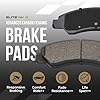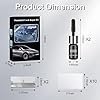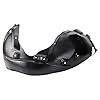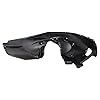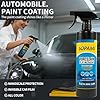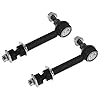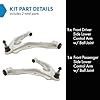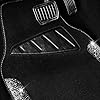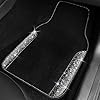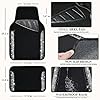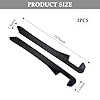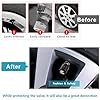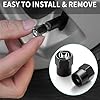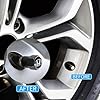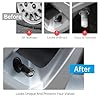Table of Contents
The engine in your car is a vital part. It helps to power the car and keep you moving. However, when there is a problem with the engine, it can be quite costly to repair. One common problem with engines is a bad or a dead cylinder.
The following are the most common causes of a dead cylinder that does not start or will misfire:
- Low Compression
- Lack of spark in the engine
- Bad Injectors
- Bad Timing
- Air Leaks
- Alternator Malfunction
(adsbygoogle = window.adsbygoogle || []).push({});
These are the reasons (which we have discussed in detail down below) that can cause a variety of problems for your car, including decreased fuel efficiency, misfiring cylinders, uneven exhaust, increased vibrations, and decreased performance.
If you are experiencing any of these issues, it may be time to fix your bad cylinder. In this article, we will show you how to fix a bad cylinder without taking your car to a mechanic. Let’s get started:
Bell MX-9 MIPS Dirt Helmets
$139.95 (as of February 22, 2026 08:07 GMT +00:00 – More infoProduct prices and availability are accurate as of the date/time indicated and are subject to change. Any price and availability information displayed on [relevant Amazon Site(s), as applicable] at the time of purchase will apply to the purchase of this product.)CAR GUYS Plastic Restorer | Bring Plastic, Rubber, and Vinyl Back to Life! | User Friendly Trim Restorer | Safe Auto Detailing Supplies | 8 Oz Kit with Foam Applicator
$17.99 (as of February 22, 2026 07:25 GMT +00:00 – More infoProduct prices and availability are accurate as of the date/time indicated and are subject to change. Any price and availability information displayed on [relevant Amazon Site(s), as applicable] at the time of purchase will apply to the purchase of this product.)Max Advanced Brakes Front Brake Kit Compatible With 2004-2015 2016 2017 Mitsubishi Lancer Caliber w/10.87″ Front Rotor Replacement Drilled Slotted Black Coated Disc Brake Rotors and Ceramic Brake Pads
$134.33 (as of February 22, 2026 02:55 GMT +00:00 – More infoProduct prices and availability are accurate as of the date/time indicated and are subject to change. Any price and availability information displayed on [relevant Amazon Site(s), as applicable] at the time of purchase will apply to the purchase of this product.)AstroAI Tire Inflator Portable Air Compressor Air Pump for Car Tires-Car Accessories, 9.8Ft Cord-12V DC-Powered Auto Pump with Digital Pressure Gauge, Emergency LED Light for Bicycle, Balloons, Yellow
$27.17 (as of February 22, 2026 08:00 GMT +00:00 – More infoProduct prices and availability are accurate as of the date/time indicated and are subject to change. Any price and availability information displayed on [relevant Amazon Site(s), as applicable] at the time of purchase will apply to the purchase of this product.)Proadsy 2026 Upgrade Front Windshield Sun Shade Foldable Sunshade Protector Custom Fit 2019-2025 RAV4 SUV Crossover LE XLE Premium Limited XSE Hybrid Adventure Accessories
$19.49 (as of February 22, 2026 08:00 GMT +00:00 – More infoProduct prices and availability are accurate as of the date/time indicated and are subject to change. Any price and availability information displayed on [relevant Amazon Site(s), as applicable] at the time of purchase will apply to the purchase of this product.)Color N Drive Touch Up Paint – Compatible with Subaru Magnetite Gray Metallic (P8Y) – Scratch and Chip Repair Kit – Plus Pack
$29.99 (as of February 22, 2026 02:55 GMT +00:00 – More infoProduct prices and availability are accurate as of the date/time indicated and are subject to change. Any price and availability information displayed on [relevant Amazon Site(s), as applicable] at the time of purchase will apply to the purchase of this product.)USANOOKS Microfiber Cleaning Cloth Grey – 12 Pcs (12.5″x12.5″) – High Performance – 1200 Washes, Ultra Absorbent Microfiber Towel Weave Grime & Liquid for Streak-Free Mirror Shine – Car Washing Cloth
$7.98 (as of February 22, 2026 10:59 GMT +00:00 – More infoProduct prices and availability are accurate as of the date/time indicated and are subject to change. Any price and availability information displayed on [relevant Amazon Site(s), as applicable] at the time of purchase will apply to the purchase of this product.)NOCO E404 12.25 Oz Battery Terminal Cleaner Spray and Corrosion Cleaner with Acid Detector
$6.32 (as of February 22, 2026 07:24 GMT +00:00 – More infoProduct prices and availability are accurate as of the date/time indicated and are subject to change. Any price and availability information displayed on [relevant Amazon Site(s), as applicable] at the time of purchase will apply to the purchase of this product.)Mniofexk 2PCS Belt Shoulder Pad for A More Comfortable Driving, Suitable for Car Interior Accessorie
(as of February 22, 2026 09:31 GMT +00:00 – More infoProduct prices and availability are accurate as of the date/time indicated and are subject to change. Any price and availability information displayed on [relevant Amazon Site(s), as applicable] at the time of purchase will apply to the purchase of this product.)Upgraded Wireless LED Lights for Car, Rechargeable Interior Car Lights with 8 Colors Brightness Adjustable, 12H Battery Life, Remote Control, Mini Strobe Lights for Vehicle Motorcycle Bike Decor
$14.99 (as of February 22, 2026 09:48 GMT +00:00 – More infoProduct prices and availability are accurate as of the date/time indicated and are subject to change. Any price and availability information displayed on [relevant Amazon Site(s), as applicable] at the time of purchase will apply to the purchase of this product.)If One Fuel Injector Is Bad Should I Replace Them All? 2023 Ultimate Guide
Symptoms of a Dead Cylinder:
The following are the most common symptoms of a dead cylinder. If you have any of these symptoms, you should not drive your vehicle. Also, try to fix a bad cylinder as soon as you can to avoid future problems:
Decreased Fuel Efficiency:
Are you experiencing decreased fuel mileage in your vehicle? If so, there’s a good chance that one (or more) of your engine’s cylinders is not functioning properly.
Symptoms of a dead cylinder can also include poor acceleration, decreased fuel mileage, and rough idling. In severe cases, the engine may even “knock” or “ping.”
An engine tune-up should be considered if any of these problems are being experienced.
Misfiring Cylinders:
If your car is misfiring, it could be due to a dead cylinder in the engine. This can be caused by several factors, including low compression, a damaged piston, or spark plug wires that are not firing.
If you see any of these signs of a dead cylinder, have it fixed right away? The long-term effects of continuing to drive with a misfiring cylinder can be disastrous, potentially necessitating a costly engine rebuild or replacement.
Auto Amazon Links: No products found. (73 items filtered out)
Uneven Exhaust:
If your car is emitting an uneven exhaust, it may be due to a bad cylinder. One of the symptoms of a dead cylinder is that the engine will run rough and produce more smoke than usual.
If you’re experiencing any of these problems, then driving with a misfiring cylinder can be fatal for your car.
Increased Vibrations:
Experiencing increased vibrations in your car especially when accelerating, could be a sign that one of your cylinders is dead. The engine may sound louder than normal, and there may be a decrease in performance. In severe cases, the engine may even stall out.
Decreased Performance:
One of your engine’s cylinders is probably dead if you’re losing power. Low compression, a leaking head gasket, or a malfunctioning spark plugs are all potential causes.
Checking and fixing any dead cylinders in your engine should be a top priority if you suspect you have any. If you continue to drive with a cylinder that isn’t firing properly, you could cause catastrophic harm to your engine.
Valvoline Advanced Full Synthetic SAE 0W-20 Motor Oil 5 QT
$26.97 (as of February 22, 2026 08:43 GMT +00:00 – More infoProduct prices and availability are accurate as of the date/time indicated and are subject to change. Any price and availability information displayed on [relevant Amazon Site(s), as applicable] at the time of purchase will apply to the purchase of this product.)VEYANCO Windshield Crack Chip Repair Kit: 2 Bottles Quick Fix Car Windows Glass Tool Used for Car Star Shaped Scratches
$9.99 (as of February 22, 2026 09:31 GMT +00:00 – More infoProduct prices and availability are accurate as of the date/time indicated and are subject to change. Any price and availability information displayed on [relevant Amazon Site(s), as applicable] at the time of purchase will apply to the purchase of this product.)TRQ Front Right Inner Fender Liner Passenger Side Compatible with 2015-2022 Dodge Charger CH1249171
$54.95 (as of February 22, 2026 02:55 GMT +00:00 – More infoProduct prices and availability are accurate as of the date/time indicated and are subject to change. Any price and availability information displayed on [relevant Amazon Site(s), as applicable] at the time of purchase will apply to the purchase of this product.)Termitor 9006 9005 LED Bulbs Combo, 100,000LM High-Intensity, 6500K Cool White HB4 HB3 LED, 10-Year Service Life with Cooling Fan, 1:1 Halogen-Replacement Design, No-Polarity Plug N Play, Pack of 4
$44.98 (as of February 22, 2026 09:31 GMT +00:00 – More infoProduct prices and availability are accurate as of the date/time indicated and are subject to change. Any price and availability information displayed on [relevant Amazon Site(s), as applicable] at the time of purchase will apply to the purchase of this product.)Sopami Car Coating Spray 2 Pack, 3-in-1 Ceramic Paint Sealant Car Wax, Maximum Gloss Shine, Extremely Hydrophobic Nano Ceramic Coating for Paint, Glass, Plastic and Metal
$27.99 (as of February 22, 2026 09:31 GMT +00:00 – More infoProduct prices and availability are accurate as of the date/time indicated and are subject to change. Any price and availability information displayed on [relevant Amazon Site(s), as applicable] at the time of purchase will apply to the purchase of this product.)Window Visors Rain Guards for 2015-2025 Ford F150 SuperCrew, Out-Channel Sun Rain Shades Window Vent Deflectors for 2017-2025 F-150 Raptor F250 F350 F450 F550 Super Duty Crew Cab, for Full-Size Cabs
$38.99 (as of February 22, 2026 08:00 GMT +00:00 – More infoProduct prices and availability are accurate as of the date/time indicated and are subject to change. Any price and availability information displayed on [relevant Amazon Site(s), as applicable] at the time of purchase will apply to the purchase of this product.)TRQ Front and Rear Sway Bar Link Set 4 Piece Compatible with 1996-2002 Toyota 4Runner
$59.95 (as of February 22, 2026 02:55 GMT +00:00 – More infoProduct prices and availability are accurate as of the date/time indicated and are subject to change. Any price and availability information displayed on [relevant Amazon Site(s), as applicable] at the time of purchase will apply to the purchase of this product.)Rain-X 820149 WeatherBeater Wiper Blades, 22″ Windshield Wipers (Pack of 2), Automotive Replacement Windshield Wiper Blades That Meet Or Exceed OEM Quality And Durability
$26.89 (as of February 22, 2026 08:07 GMT +00:00 – More infoProduct prices and availability are accurate as of the date/time indicated and are subject to change. Any price and availability information displayed on [relevant Amazon Site(s), as applicable] at the time of purchase will apply to the purchase of this product.)Tossits Recycled Disposable Car Trash Bags – Leakproof, Smell Proof Hanging Garbage Bags for Car, Truck, SUV, RV & Vehicle – Black, 7 Count Disposable Automotive Trash Bags
$12.99 (as of February 22, 2026 07:25 GMT +00:00 – More infoProduct prices and availability are accurate as of the date/time indicated and are subject to change. Any price and availability information displayed on [relevant Amazon Site(s), as applicable] at the time of purchase will apply to the purchase of this product.)Dupli-Color EBCL01257 Clear Perfect Match Automotive Top Coat – 8 oz. Aerosol
$15.29 (as of February 22, 2026 09:01 GMT +00:00 – More infoProduct prices and availability are accurate as of the date/time indicated and are subject to change. Any price and availability information displayed on [relevant Amazon Site(s), as applicable] at the time of purchase will apply to the purchase of this product.)What Causes A Dead Cylinder:
Low Compression:
When compression is low, it means the compression rings are worn out or stuck. Such rings must be placed in the piston grooves. Rings are flexible, so they can be squeezed up against the cylinder engine walls, but squeezing them too much can cause them to crack.
A clogged air filter is a leading cause of low compression in any vehicle engine. A blocked air filter decreases the sucking of air. If your air filter is clogged, you can check for it by removing it and holding it in front of a light. If the filter is so dirty that no light can pass through it, then it is definitely time to replace it.
A dirty engine is a common contributor to a cylinder with poor compression. A dirty engine prevents the pistons and cylinders from moving freely, reducing compression. Remove the oil filler cap and inspect the oil within the engine to see if it’s unclean. Whether or not it needs to be cleaned will be obvious to you.
There are many potential causes of low compression in one of your cylinder engine. Some of them include:
- Carbon deposits build-up
- Leak in the piston rings
- Blown head gasket
An instrument known as a peak pressure gauge is used to measure compression. You can start the engine after installing it in place of the spark plug. It will display the maximum pressure that was present in the cylinder engine at the time the engine was starting to turn.
No Spark:
There are many possible causes of a bad cylinder. A lack of spark is one possible cause. The spark plug may be dirty or the electrode may be worn down, preventing the spark from igniting the fuel and air in the cylinder engine.
Spark can also be lost due to a faulty or corroded wiring harness not properly connecting to the spark plug. If you have a spare wire, you can switch out the damaged one and see if the spark returns. A damaged contact on the ignition distributor is another probable cause.
Auto Amazon Links: No products found. (58 items filtered out)
Bad Injectors:
When an injector malfunctions, it might cause little or excessive fuel to be injected. It’s possible that the fuel is being injected too much or not at all into the combustion chamber. Combustion issues and a cylinder’s inability to fire up are the results of this.
Checking the injectors is a good idea if you hear any unusual sounds coming from your vehicle or if it is performing poorly.
Bad Timing:
Incorrect timing prevents the piston from traveling all the way to the cylinder head, preventing compression. To put it another way, this can lead to cylinder failure due to improper combustion.
It’s crucial to get the engine timing right. In order to ensure that the right air/fuel mixture enters the cylinder and the proper exhaust exits the cylinder, the valves must open and close at precisely the exact times. If something goes wrong with the timing, it causes a bad cylinder.
Air Leaks:
When there is not enough air in the air-fuel combination, the fuel does not burn efficiently, and as a result, one or more of the cylinders may not function properly.
What is meant by “unaccounted for air” is the air that enters the intake manifold after the mass airflow (MAF) sensor but is not recorded. The engine control unit (ECU) doesn’t take it into account when figuring out the optimal fuel-air ratio because it can’t detect it.
TRQ Front Lower Driver and Passenger Side Aluminum Control Arm and Ball Joint Set 2 Piece Compatible with 14-17 Chevrolet Silverado/Sierra 1500 15-16 Tahoe/Yukon/Escalade – Verify Fitment & Notes
$309.95 (as of February 22, 2026 02:54 GMT +00:00 – More infoProduct prices and availability are accurate as of the date/time indicated and are subject to change. Any price and availability information displayed on [relevant Amazon Site(s), as applicable] at the time of purchase will apply to the purchase of this product.)ANCEL AD310 Classic Enhanced Universal OBD II Scanner Car Engine Fault Code Reader CAN Diagnostic Scan Tool, Read and Clear Error Codes for 1996 or Newer OBD2 Protocol Vehicle (Black)
$23.99 (as of February 22, 2026 08:55 GMT +00:00 – More infoProduct prices and availability are accurate as of the date/time indicated and are subject to change. Any price and availability information displayed on [relevant Amazon Site(s), as applicable] at the time of purchase will apply to the purchase of this product.)Detroit Axle – Rear Brake Kit for 2008-2017 Honda Accord 2009-2014 Acura TSX Disc Brake Rotors Ceramic Brakes Pads Replacement : 11.10″ inch Rotors
$67.35 (as of February 22, 2026 02:57 GMT +00:00 – More infoProduct prices and availability are accurate as of the date/time indicated and are subject to change. Any price and availability information displayed on [relevant Amazon Site(s), as applicable] at the time of purchase will apply to the purchase of this product.)AstroAI Tire Inflator Portable Air Compressor Air Pump for Car Tires-Car Accessories, 9.8Ft Cord-12V DC-Powered Auto Pump with Digital Pressure Gauge, Emergency LED Light for Bicycle, Balloons, Yellow
$27.17 (as of February 22, 2026 08:00 GMT +00:00 – More infoProduct prices and availability are accurate as of the date/time indicated and are subject to change. Any price and availability information displayed on [relevant Amazon Site(s), as applicable] at the time of purchase will apply to the purchase of this product.)EcoNour 27″ Aluminum Ice Scrapers for Car Windshield | Car Snow Scraper Window and Snow Brush with Ergonomic Foam Grip Winter Accessories (Orange)
$13.59 (as of February 22, 2026 07:25 GMT +00:00 – More infoProduct prices and availability are accurate as of the date/time indicated and are subject to change. Any price and availability information displayed on [relevant Amazon Site(s), as applicable] at the time of purchase will apply to the purchase of this product.)CAR PASS Bling Car Mats Shining Diamond Carpet Crystal Rhinestone Sparkly Glitter Floor Mats with Anti-Slip PVC Pad Universal Fit Automotive SUV,Sedan,Van,4pcs for Girl Women, Black Sliver Diamond
$25.63 (as of February 22, 2026 07:25 GMT +00:00 – More infoProduct prices and availability are accurate as of the date/time indicated and are subject to change. Any price and availability information displayed on [relevant Amazon Site(s), as applicable] at the time of purchase will apply to the purchase of this product.)Color N Drive Touch Up Paint – Compatible with Subaru Magnetite Gray Metallic (P8Y) – Scratch and Chip Repair Kit – Plus Pack
$29.99 (as of February 22, 2026 02:55 GMT +00:00 – More infoProduct prices and availability are accurate as of the date/time indicated and are subject to change. Any price and availability information displayed on [relevant Amazon Site(s), as applicable] at the time of purchase will apply to the purchase of this product.)IHOTDER 2PCS Car Seat Gap Filler – Car Seat Gap Filler Organizer for Holding Phone,Key,Purse – Universal Car Gap Filler Fits Car Truck SUV Car Interior Accessories (Black/2PCS)…
$10.76 (as of February 22, 2026 07:25 GMT +00:00 – More infoProduct prices and availability are accurate as of the date/time indicated and are subject to change. Any price and availability information displayed on [relevant Amazon Site(s), as applicable] at the time of purchase will apply to the purchase of this product.)4pcs Tire Valve Stem Caps, Compatible with Toyota TRD Sequoia Tundra Tacoma 4Runner Trucks Series Stem Cap Universal Car Air Cover Car Accessories for Cars, SUV, Truck, Motorcycles Black
$9.99 (as of February 22, 2026 09:31 GMT +00:00 – More infoProduct prices and availability are accurate as of the date/time indicated and are subject to change. Any price and availability information displayed on [relevant Amazon Site(s), as applicable] at the time of purchase will apply to the purchase of this product.)Chemical Guys VRP Protectant & WonderWave Applicators Kit – 16 oz Vinyl, Rubber, and Plastic Dressing with Foam Applicators – Restores Your Car’s Interior & Exterior Surfaces
$17.99 (as of February 22, 2026 09:31 GMT +00:00 – More infoProduct prices and availability are accurate as of the date/time indicated and are subject to change. Any price and availability information displayed on [relevant Amazon Site(s), as applicable] at the time of purchase will apply to the purchase of this product.)Alternator Malfunction:
The car’s alternator is an essential component of its electrical system. Its primary function is to supply energy to the vehicle’s many systems and engines. A defective cylinder is just one of the issues that can arise from a faulty alternator.
The alternator is susceptible to a wide variety of problems. Seized bearings are a prevalent issue. The alternator could overheat and stop working as a result of this. A faulty diode is another potential cause of the issue. This can cause the engine’s power to decrease and eventually shut down.
How To Fix a Bad Cylinder?
To fix a bad cylinder, we must consider each of the factors that contribute to a malfunctioning cylinder individually. As a result, we’ll start with the most common of them all: Spark Plugs.
Inspect the Spark Plugs:
One by one, we remove spark plugs from the ignition system to check the insulation around them. Sparks can’t reach very far if the surface is covered in a thick layer of deposits. Check the insulator’s outside to see if it is in good shape for the spark plug. Deposits on spark plugs can be caused by a number of different things.
If there are any little holes or cracks, the spark can escape that way. Both the inner dielectric material (which is fitted into the cylinder head) and the outside insulating material (to which the armature wire cap is connected) should be examined carefully.
Examine the High Voltage Wires:
It’s possible that the issue is with the wiring. The harsh working conditions could cause them to become dislodged.
When the high voltage discharges, it tears through them. Over time, these areas will develop a faint stain with a few black spots or streaks of soot. It’s easy to spot the motor when it’s running at night. Sparks are emitted from the points of failure.
The cylinder will stop working since the spark is completely inadequate. When the time comes, you should switch out the old protected wires for new ones.
Inspect the Ignition Coils:
Depending on the model, the vehicle’s ignition may be controlled by a central module or by separate coils for each spark plug. Additionally, if they break, the cylinder will be considered worthless. If the engine’s performance suddenly begins to fluctuate, try removing the spark plug covers one by one until the issue is fixed.
Keep an eye out to see if there is a spark between them. If there is sparking on all of the spark plugs, this indicates that the combustion module is in working order.
Frequently Asked Questions:
(adsbygoogle = window.adsbygoogle || []).push({});
Q: How Much Does It Cost to Fix One Bad Cylinder?
A: Fixing a faulty cylinder will cost at least $500, which doesn’t include labor or parts. To replace the cylinder head entirely would cost between $200 and $300. There is a range of $90-$100 per day for this, depending on the scope of the work.
Q: What Are the Causes of a Dead Cylinder?
A: The following are the most common causes of a dead cylinder that does not start or will misfire:
Low Compression
Lack of spark in the engine
Bad Injectors
Bad Timing
Air Leaks
Alternator Malfunction
Q: How to Fix a Bad Cylinder?
A: To fix a bad cylinder, we must consider each of the factors that contribute to a malfunctioning cylinder individually. However, you can do the following:
Inspect the spark plugs, high-voltage wires, and Ignition coils. Make sure to replace one if required.
Q: How Much Does Fixing The Engine Cylinder Cost?
A: The cost of repairing a cracked cylinder varies depending on the vehicle being repaired. The cost of an electronic device is determined by the number of parts and labor hours required.
A budget of $500 is a good minimum to work with. Your car’s worth will then be established based on its size, brand, model, degree of damage, and where you want to have it fixed.
Q: What Happens If One Cylinder Goes Bad?
A: A misfired cylinder refers to an engine that fires a large amount of power from one cylinder because there are multiple connections between these two cylinders.
A four-cylinder car’s power is reduced by a fourth when one of its cylinders fails along with the rest of the cylinders in a four-cylinder car. If the cylinder engine is not fixed, the engine will be spoiled at any point in the future.
Q: Is It Possible to Fix Broken Cylinders?
A: A cylinder head can be repaired and restored by someone with basic tools in your garage for as little as $75, while the full process can cost several hundred dollars. The cylinder head’s repair cost in the event of a crack renders it inoperable, and can be used in conjunction with the evaluative value to determine its worth.
Q: Can a Car Cylinder Be Replaced?
A: Most car engines can function fine without extra cylinders. A cylinder, for instance, is a component of an automobile’s engine block. Even if the first piston seems fine, you may want to replace it nevertheless. Finally, the root of the issue must be fixed.
Q: What If the Cylinder Has a Low Compression?
A: Vehicles with low compression often misfire while starting and have erratic performance. There is no compression in any of the cylinders, and that’s why your engine won’t turn over.
Q: Is driving with a misfiring cylinder safe?
A: It is not recommended to drive a car with a dead-cylinder engine. Although it is necessary to unplug the respective injector in order to prevent damage to the catalytic converter, most vehicles will do so instantaneously if they detect a misfire in the engine’s combustion chamber.
Q: How Much Does Fixing Low Compression In One Cylinder Costs?
A: The average cost to have a skilled mechanic fix the low compression in your single-cylinder engine is between $100 and $200. You’ll have to replace any components that were found to be damaged in addition to footing the bill for the repair. Head gasket repairs usually cost between $1000 and $2000.
Q: What Are The Symptoms of a Dead Cylinder?
A: The common symptoms of a dead cylinder include: decreased fuel mileage, misfiring cylinders, uneven exhaust, increased vibrations, and decreased performance.
If you notice any of them and still driving with a misfiring cylinder, you are calling for a disaster to hit. Take Caution…
Conclusion:
In conclusion, if your engine is knocking or pinging, or if you have noticed any of the symptoms of a dead cylinder, it is likely that you have a bad cylinder. There are several ways to fix this problem, but the most common is to remove the head and replace the cylinder.
If you are comfortable doing this yourself, it can be a relatively easy and inexpensive repair. However, if you are not satisfied with this type of repair, it is best to take your car to a mechanic.
Thanks for reading!














